We are pleased to announce the selection of Mary Joan Gerson’s 2018 paper, “Death of a Parent: Openings at an Ending” (Psychoanalytic Perspectives, 15:3, 340-354) as the subject of IARPP’s next colloquium. The colloquium will run from November 13 to 24, following the usual format of 3-4 days of discussion amongst a select group of international panelists before the forum is opened up to include IARPP’s entire membership. Access to the paper will be made available to all IARPP members via email one week prior to the colloquium’s start.
Our diverse and impressive slate of panelists will be: Manuel Aburto (Spain), Tamar Barnea (Israel), Cynthia Chalker (USA), Jody Davies (USA), Carla Fischer (Chile), Jen Fox (Australia), Shifa Haq (India), Gary Rodin (Canada) and Peter Shabad (USA). We are also pleased to let you know that we have made arrangements for the paper to be translated into Spanish, Greek and Russian just for this colloquium, by Marie Saba, Manousia Kypraiou under the direction of Stavros Charalambides, and Alexander Levchuk, respectively.
Cathy Hicks (Australia) and Amy Schwartz Cooney (USA), Co-chairs
Cathy Hicks and Amy Schwartz Cooney recently began their tenures as the IARPP Colloquium Committee’s new co-chairs. I spoke with them earlier this month about their vision for future colloquia and their experiences getting started. Here is that interview, followed by an introduction of the full Colloquium Committee.
Matt Aibel (USA), Editor, The IARPP Bulletin
Congratulations, Cathy and Amy, on your new leadership roles.
CH: Thanks, Matt. I feel honored to have been given the responsibility to be part of managing this significant part of IARPP’s operations – even while exactly that leaves me feeling quite challenged and more than a bit anxious! The IARPP tradition of having two people chairing each of the committees is a great advantage here, and I’m especially thankful to be working with Amy, whose capacity for research, thinking and work in general is seriously impressive!
ASC: Thanks. I’m also grateful for this opportunity to join Cathy in co-chairing the colloquium series and working to develop meaningful discussions that we can engage in as an international community. I’m excited about working with Cathy to actively invite a broadening range of relational voices into the discussion and to foster a respectful tone of curiosity and openness to all points of view.
Would you each share a little background on your history with IARPP and a sense of your particular interests within relational theory and practice?
CH: I was introduced to IARPP via the reading group in Sydney in the early 2000s. This group later became the local Chapter out here, and I was part of establishing that as well as being part of the executive committee for many years. More than that though was the way in which that reading group, and the relational thinking that inspired it, represented a professional ‘home’ for me as a relatively new migrant to Australia at that stage. So IARPP as a group, and relational theory and practice, has a quite specific meaning and relevance for me.
ASC: I’ve been a member of IARPP since the early days of my analytic training at NYU Post-Doc and have been presenter, discussant, and moderator in several IARPP conferences. I am on faculty at NYU Post-Doc, The Mitchell Center and NIP, where I’m also on the Board. In addition to teaching and supervising, I’ve been involved in developing colloquium and conferences at each institute. I am especially interested in comparative psychoanalysis, object relational integrations, and holding the complexity of the intersubjective/intrapsychic paradigm.
My recent work focuses on the notion of Vitalizing Enactment (Psychoanalytic Dialogues, 2018), which I describe as uniquely progressive enactments that can resolve necrotic impasse and generate new experience in the here and now. I’m interested in the proactive function of psychoanalysis, exploring the ways in which we make visceral, “ground level” contact, and in the interplay of old and new experiences in psychoanalysis.
How do you think this is informing your approach to this new undertaking?
ASC: I very much want to focus on comparative dialogue and explore major themes in relational psychoanalysis that engage our two-person tradition of integrating intersubjective and intrapsychic experience, while also welcoming in new and evolving relational ideas.
CH: I especially enjoyed the ‘big tent’ dimension that I think was more prevalent earlier on, and I’m hoping we can recapture some of that. The ability to juggle different theories, noting where they clash and converge, is a particular strength of the relational approach, and I’m hoping the colloquium series can express that.
Is there a particular ethos or mission informing your aims for the IARPP colloquia?
CH: We do have a particular ethos for this next phase of the colloquium series. We would like for the colloquia discussions to have as their focus the strength of comparative thinking and rigorous, respectful challenge that characterize the best of the relational approach. This was really well-expressed by Steve Mitchell in the Editorial Philosophy in the first edition of Psychoanalytic Dialogues. He said the journal would strive for a tone that tries to “grasp differences in perspectives without derision or dismissal, trying to understand why and how we approach and organize our clinical experiences in the different way we do” (1991, p. 6). And thanks to Ilene Philipson for reminding us of this great reference.
I can’t help but ask for further elaboration regarding your invocation of “without derision or dismissal” and your desire for a respectful tone. My own associations run to how extremely polarized the U.S., the U.K., Israel, and many other countries currently are in their politics and the intense invective, even hate speech, that colors political discourse in this moment. And also, perhaps not unrelated, how hot and sometimes hurtful the discourse got in one or two recent IARPP colloquia. I see it as well in email exchanges peppering the Division 39 listserv [the American Psychological Association’s psychoanalytic division]. Passions rise and stakes are sometimes high, but the harshness, though only occasional, has been dismaying.
CH: You’re spot-on with your associations Matt. I’m strongly in favour of vigorous, even heated discussion, where differences can be expressed – argued even, but I’m really averse to the personal and provocative comments that have sometimes seeped into listservs and colloquia. Amy and I want to ensure that ideas and concepts remain the focus, not the people who express them.
ASC: There have been times when IARPP discussions have threatened to collapse into doer-done to binaries that lack the essential respect for diverse thought that’s at the core of the relational tradition. We want to invite more voices into the colloquium, including newer members of the relational community, and as co-chairs, we’ll work with all contributing voices on maintaining both an intellectually rigorous, and emotionally thoughtful conversation.
Good. And you have the ability to do that not only by striving to set a respectful tone up front, but through your monitoring of all the posts as well – no doubt a big task to manage. I’d only add that, despite a few exceptions, I’ve found the tone of almost all the colloquia I’ve been around for over the past 10 years has been characterized by a sense of mutual respect and more, a sense of camaraderie and companionship around the challenging and often lonely work we do.
So what’s been involved in the process of selecting the first paper of your tenure?
CH: We wanted something that would offer a strong theoretical grounding as well as having the potential for a multitude of meanings and clinical interpretations. We trawled through the journals for a couple of weeks and agreed that Mary Joan’s paper met these criteria and more.
ASC: Cathy and I have been really pleased at the ways in which our perspectives and reactions complement one another. This was certainly the case with Mary Joan’s paper which has a clinical immediacy and is sophisticated theoretically in emphasizing the importance of internal representations, external relationships, and the value of thinking psychoanalytically about development through the life span.
Have either of you served as a panelist in an IARPP colloquium?
CH: I was a panelist when Yvette Esprey’s paper was discussed.
What was the experience of being a panelist like for you, Cathy?
CH: It was intense! While I usually follow the colloquia, in that one I felt it necessary to immerse myself in all the postings as they came in. This provided a depth of learning and understanding that I don’t think I’d have gained otherwise.
Were there ways in which the experienced surprised you?
CH: The process moved really quickly. Very often I’d still be formulating what I wanted to say, only to find that the conversation had moved on. I’d not experienced this as clearly before, when I was just reading, without planning a response.
I also want to add that I was part of the colloquium committee while Rina and Adrienne were the co-chairs, and this experience and the learning I received from these two wise and wonderful women has been invaluable in taking up the mantle.
What else is involved in putting together the colloquia?
CH: It takes a village! We’re supported by the great committee which you’re introducing here, whose particularly valuable contribution is to amplify our thinking by suggesting names of discussants who would be a good fit for the paper. In the background are also the IARPP office staff, Val Ghent, Elisa Zazzera and Lucia Lezama Tannenbaum, who do an enormous amount of work in getting all the approvals we need, managing the CE elements, sending out the notifications, training us all in the use of the technology – to mention just a few of the tasks that are involved in making the colloquium happen. And not to forget the generous volunteers who translate the papers for us to make them more accessible to our members for whom the first language is not English.
ASC: Since this is our first colloquium, I can only comment on the present task, which has been to find a paper that is theoretically and clinically rich, which we are grateful for in Mary Joan Gerson’s article. The other goal so far has been to assemble panelists who can engage in a broad-reaching, inclusive discussion that will offer and invite a range of ideas in a way that respects difference and encourages open thought. Cathy and I are brainstorming in video-chats, reviewing the literature, and liaising with Committee and Board.
The prior leaders of the Colloquium Committee, whom you mentioned, Cathy, Rina Lazar and Adrienne Harris, represented international diversity not only geographically but also linguistically (a native Hebrew speaker and a native English speaker). As a pair, you two are both English speakers, but you live on opposite sides of the planet. What’s it been like so far to collaborate across the dateline?
CH: It’s interesting, Matt, with the availability of the internet, anything’s possible, and the time difference really works quite well. We’ve done lots of talking during Amy’s evening/my morning. Then while I’m asleep at night, she’s working away and I read all about it in the morning, and vice versa. So we think this’ll work quite well while the colloquium is running, with one of us ‘on duty’ almost all the time, and some overlap when we will need to confer and discuss what’s happening. It’s only the time zones that are really different. Our approach to the work dovetails pretty neatly.
ASC: It’s been a total pleasure. I feel like I have a pen-pal in Australia (or I should say, a FaceTime friend). It’s been a delight to get to know Cathy, who has generously welcomed me onto the committee and has been a wonderful collaborator. Working with her points to the value of having an international community to dialogue with, a value that IARPP offers to all of us.
In closing, are there any ways you hope the upcoming colloquium will further relational thinking? Do you have any particular hopes and goals for it?
CH: I find Mary Joan’s observation that “we have yet to adequately delineate lifelong development and, in particular, the shifts in representations of our parents as we age” particularly compelling, and I’m hoping that others will be equally as challenged and inspired by this thought as we elaborate and discuss through the days of the colloquium.
ASC: I agree that this paper makes a strong contribution by emphasizing the importance of considering life span development in psychoanalysis, rather than focusing primarily on the impact of our early relationships and internalizations. We hope to have a great talk that welcomes new and established voices into a conversation that will be enlivening, enlightening, and fun for all of us.
Well, count me in. It’s always a great challenge to keep up with all the posts, perhaps really an impossibility. But it’s an exciting experience, and the colloquium material always winds up infusing my daily practice, sometimes in remarkable ways. So I look forward to this next one, and I’m pleased to have had this opportunity to speak with you both. Thank you for all the work you’ve clearly already been doing, and thanks for speaking about it.
Here are all the members of the Colloquium Committee:
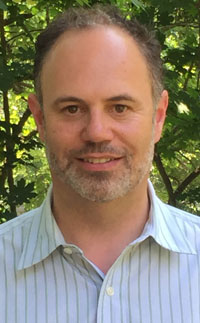 Matt Aibel, LCSW (USA), is Editor-in-Chief of IARPP’s newsletter and Associate Editor of Psychoanalytic Perspectives. He is on faculty at the National Institute for the Psychotherapies and was NIP’s Associate Director of Continuing Education for five years, where he selected, organized, and oversaw 25 half-day workshops with many of the US’s most influential analytic thinkers. His writing is published in Psychoanalytic Psychology and Psychoanalytic Perspectives (Gradiva nomination). He has presented at and moderated panels for IARPP (webinar and conferences). He practices in Manhattan and on Long Island, NY.
Matt Aibel, LCSW (USA), is Editor-in-Chief of IARPP’s newsletter and Associate Editor of Psychoanalytic Perspectives. He is on faculty at the National Institute for the Psychotherapies and was NIP’s Associate Director of Continuing Education for five years, where he selected, organized, and oversaw 25 half-day workshops with many of the US’s most influential analytic thinkers. His writing is published in Psychoanalytic Psychology and Psychoanalytic Perspectives (Gradiva nomination). He has presented at and moderated panels for IARPP (webinar and conferences). He practices in Manhattan and on Long Island, NY.
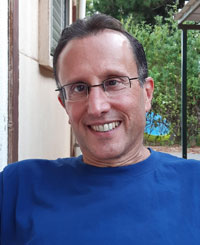 Mitchel Becker, Ph.D. (Israel) has written on Relational Psychoanalysis with an emphasis on sustaining the dialectical tension between the monadic and the intersubjective modes of being as they are played out in issues concerning play, projective identification, narcissism, the capacity to know, the capacity to disappear and our quest for freedom. Dr. Becker, a clinical psychologist, teaches courses on the work of Wilfred Bion and Relational Psychoanalysis at the Psychotherapy Programs of Bar Ilan University and The Israel Winnicott Center. He has a private practice in Raanana, Israel.
Mitchel Becker, Ph.D. (Israel) has written on Relational Psychoanalysis with an emphasis on sustaining the dialectical tension between the monadic and the intersubjective modes of being as they are played out in issues concerning play, projective identification, narcissism, the capacity to know, the capacity to disappear and our quest for freedom. Dr. Becker, a clinical psychologist, teaches courses on the work of Wilfred Bion and Relational Psychoanalysis at the Psychotherapy Programs of Bar Ilan University and The Israel Winnicott Center. He has a private practice in Raanana, Israel.
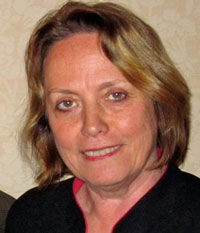 Adrienne Harris, Ph.D. (USA) is faculty/supervisor at NYU Postdoctoral Program in Psychotherapy and Psychoanalysis and the Psychoanalytic Institute of Northern California. She is an editor at Psychoanalytic Dialogues, Studies In Gender and Sexuality, and the IPA e-journal Psychoanalysistoday.com, developing cross-cultural communications among the IPA’s five language groups. She co-founded the Sandor Ferenczi Center at the New School University and co-edits the book series Relational Perspectives in Psychoanalysis, now with over 100 volumes. Her current work is on analytic subjectivity, intersectional models of gender and sexuality, and ghosts.
Adrienne Harris, Ph.D. (USA) is faculty/supervisor at NYU Postdoctoral Program in Psychotherapy and Psychoanalysis and the Psychoanalytic Institute of Northern California. She is an editor at Psychoanalytic Dialogues, Studies In Gender and Sexuality, and the IPA e-journal Psychoanalysistoday.com, developing cross-cultural communications among the IPA’s five language groups. She co-founded the Sandor Ferenczi Center at the New School University and co-edits the book series Relational Perspectives in Psychoanalysis, now with over 100 volumes. Her current work is on analytic subjectivity, intersectional models of gender and sexuality, and ghosts.
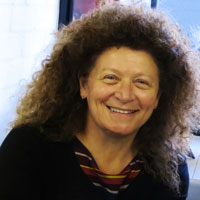 Cathy Hicks, Ph.D. (Australia) is a clinical psychologist and psychoanalytic psychotherapist in private practice in Sydney, where she works with adults and couples in long-term psychoanalytic psychotherapy. She is a member of the Board of Directors of IARPP and serves on the Finance Committee and the International Conference Committee of the organization. She is a founding member and past president of IARPP in Australia and was co-chair of the 2017 IARPP Annual Conference held in Sydney.
Cathy Hicks, Ph.D. (Australia) is a clinical psychologist and psychoanalytic psychotherapist in private practice in Sydney, where she works with adults and couples in long-term psychoanalytic psychotherapy. She is a member of the Board of Directors of IARPP and serves on the Finance Committee and the International Conference Committee of the organization. She is a founding member and past president of IARPP in Australia and was co-chair of the 2017 IARPP Annual Conference held in Sydney.
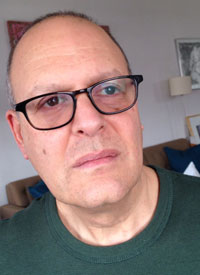 Steven H. Knoblauch, Ph.D. (USA) is Clinical Adjunct Associate Professor, New York University Postdoctoral Program in Psychotherapy and Psychoanalysis, and faculty/supervisor at several other Institutes. He is author of The Musical Edge of Therapeutic Dialogue (2000) and co-author with Beebe, Rustin and Sorter of Forms of Intersubjectivity in Infant Research and Adult Treatment. He serves on the editorial boards of Psychoanalytic Perspectives, Psychoanalytic Dialogues, and Psychoanalysis, Self and Context.
Steven H. Knoblauch, Ph.D. (USA) is Clinical Adjunct Associate Professor, New York University Postdoctoral Program in Psychotherapy and Psychoanalysis, and faculty/supervisor at several other Institutes. He is author of The Musical Edge of Therapeutic Dialogue (2000) and co-author with Beebe, Rustin and Sorter of Forms of Intersubjectivity in Infant Research and Adult Treatment. He serves on the editorial boards of Psychoanalytic Perspectives, Psychoanalytic Dialogues, and Psychoanalysis, Self and Context.
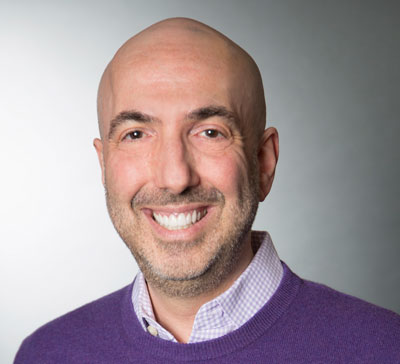 Steven Kuchuck, DSW (USA): Editor-in-Chief, Psychoanalytic Perspectives; Co-Editor, Relational Perspectives Book Series; President, IARPP; Board Member, supervisor, faculty, NIP; and supervisor/faculty at NIP National Training Program, Stephen Mitchell Relational Study Center, and other institutes. Dr. Kuchuck lectures nationally and internationally, and his teaching and writing focus primarily on the clinical impact of the therapist’s subjectivity. Gradiva Awards for best psychoanalytic books: Clinical Implications of the Psychoanalyst’s Life Experience and The Legacy of Sandor Ferenczi: From Ghost to Ancestor (with Adrienne Harris).
Steven Kuchuck, DSW (USA): Editor-in-Chief, Psychoanalytic Perspectives; Co-Editor, Relational Perspectives Book Series; President, IARPP; Board Member, supervisor, faculty, NIP; and supervisor/faculty at NIP National Training Program, Stephen Mitchell Relational Study Center, and other institutes. Dr. Kuchuck lectures nationally and internationally, and his teaching and writing focus primarily on the clinical impact of the therapist’s subjectivity. Gradiva Awards for best psychoanalytic books: Clinical Implications of the Psychoanalyst’s Life Experience and The Legacy of Sandor Ferenczi: From Ghost to Ancestor (with Adrienne Harris).
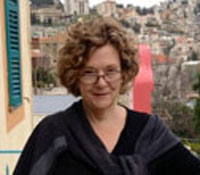 Rina Lazar, Ph.D. (Israel), is a clinical psychologist. She is lecturer and supervisor in the Psychoanalytic Psychotherapy program, Sackler School of Medicine, Tel Aviv University. She was a board member of IARPP and chairperson of the Israeli Chapter. Rina is co-editor (with Prof. Shlomo Biderman) of two books, “Desire” and “The Blind Spot,” published by Hakibutz Hameuchad Publishing House. She edited “Talking about Evil” (Routledge, 2017) in the RBP series. She works in private practice in Tel-Aviv.
Rina Lazar, Ph.D. (Israel), is a clinical psychologist. She is lecturer and supervisor in the Psychoanalytic Psychotherapy program, Sackler School of Medicine, Tel Aviv University. She was a board member of IARPP and chairperson of the Israeli Chapter. Rina is co-editor (with Prof. Shlomo Biderman) of two books, “Desire” and “The Blind Spot,” published by Hakibutz Hameuchad Publishing House. She edited “Talking about Evil” (Routledge, 2017) in the RBP series. She works in private practice in Tel-Aviv.
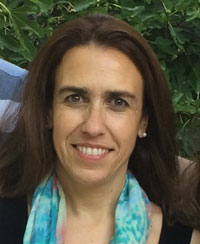 Maria Jose Mezzera, Ph.D. (Chile) is a clinical psychologist and psychoanalyst. A native of Uruguay, she now lives and works in Chile. She was trained as a psychoanalyst in the IPA institute of Santiago. Between 2012 and 2018, she belonged to and later co-chaired IARPP´s Candidates Committee. She served on the local IARPP Board between 2014 and 2018. Currently, she is a member of IARPP, APSAN (Psychoanalytic Association of Santiago) and ILAS (Latin American Institute of Human Rights and Mental Health).
Maria Jose Mezzera, Ph.D. (Chile) is a clinical psychologist and psychoanalyst. A native of Uruguay, she now lives and works in Chile. She was trained as a psychoanalyst in the IPA institute of Santiago. Between 2012 and 2018, she belonged to and later co-chaired IARPP´s Candidates Committee. She served on the local IARPP Board between 2014 and 2018. Currently, she is a member of IARPP, APSAN (Psychoanalytic Association of Santiago) and ILAS (Latin American Institute of Human Rights and Mental Health).
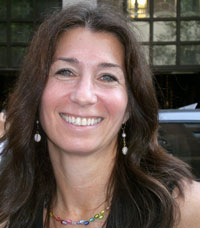 Amy Schwartz Cooney, Ph.D. (USA) is faculty at NYU Post-Doc where she’s developed a Comparative Psychoanalysis Project and chaired the Relational Colloquium Series. She is on the Board of NIP, faculty/supervisor of its National Training Program, and chairs its Annual Conference. She is also faculty/supervisor and Executive Committee member at the Stephen Mitchell Center. Amy’s most recent work (Psychoanalytic Dialogues, 2018) develops the notion of Vitalizing Enactment. She is currently co-editing a multi-perspectival collection on Vitalization with Rachel Sopher for Routledge. She is in private practice in NYC.
Amy Schwartz Cooney, Ph.D. (USA) is faculty at NYU Post-Doc where she’s developed a Comparative Psychoanalysis Project and chaired the Relational Colloquium Series. She is on the Board of NIP, faculty/supervisor of its National Training Program, and chairs its Annual Conference. She is also faculty/supervisor and Executive Committee member at the Stephen Mitchell Center. Amy’s most recent work (Psychoanalytic Dialogues, 2018) develops the notion of Vitalizing Enactment. She is currently co-editing a multi-perspectival collection on Vitalization with Rachel Sopher for Routledge. She is in private practice in NYC.

